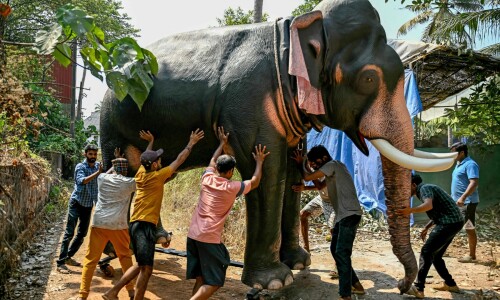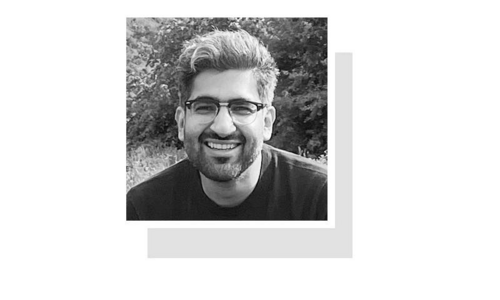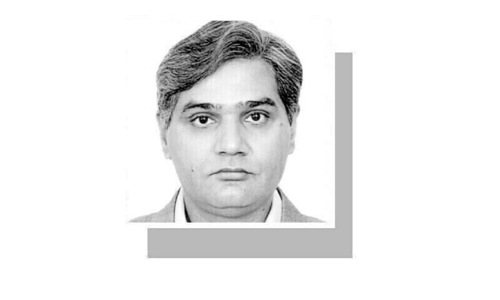
Moving from one place to another was never a problem for him. He lived out of his suitcase, rather a large bag that he carried with him. He ate little, morsels of bread with coffee in the morning and some bread, with coffee and cheese at night. And he carried these with him too.
I met him at Ocean City, Maryland, where I also watched him playing his guitar. He played well. So when the session ended, he collected about $30, put his guitar back in its case and said: “Enough for the dinner and tomorrow’s breakfast. Now I will go back to the waves, they are calling me.”
His name was Johnnie, Johnnie what, he never told me but he did tell me that he was a Vietnam veteran. I met him on the beach when one of my sons wandered away. He saw him far from us, brought him back and said: “You are from India, right? I know you people, you believe this country is crime free, so you let your children wander away. Let me tell you, it is not crime free. He can be kidnapped from anywhere.”
I told him I was from Pakistan, not India, thanked him and offered him a sandwich. He accepted the offer but put two sandwiches in his bag and said “This means less work and more time for the waves.”
He then said he only works to make enough for breakfast and dinner and never eats lunch. “And who pays your bills?” I asked. “No bills, I do not own or rent anything.”
He said he had a friend in Ocean City, and was living in his basement. But there are places where he does not have a friend and in such places, he has to work a little more to pay for sleeping somewhere. For him working a little more is playing his guitar a little more.
We became friends when I told him I was a war correspondent. “In Vietnam?” he asked. “No, in Afghanistan, during the Soviet occupation,” I said. “Do you sing?” he asked. “No,” I said. “Then what do you do? Those who have seen wars always do something other than what they do for a living, like singing, painting, writing poetry,” he explained.
I said I love poetry. Although I am not a poet, I do sometimes write a little poem. He asked me to read a poem about my war experience. I said I did not have one with me but I had one about terrorism in my cell phone and could read it out for him. He agreed.
“No, no, this is not how it happens, when crops of pain are reaped. Nobody beats drums, when village youths return home in body bags. Women do not dance, people mourn, they do not rejoice,” I read the poem.
“Their coffins are brought home, drenched in tears. No, no, this is not how it happens. You cannot sow seeds of hate and hope for flowers. When a storm lands, when a fire rages, homes burn, people cry. They do not rejoice, cities of pain do not thrive, flowers do not grow in fields of hate. No, no, this is not how it happens,” I finished.
He asked me if I wrote it in English. I said no, in my language, Urdu. He copied the English version in his diary and then asked me to recite some lines in Urdu. I did. He noted them too.
“You gave me a lot of work,” he said and disappeared.
He came the next evening and asked me to accompany him and tell him if I liked his composition of my poem.
He used only one Urdu line, istarah naheen hota, istarah naheen hota (No, this is not how it happens). It sounded funny but somehow people liked that particular line, although nobody knew what it meant.
That evening he earned $50 because he told them he had to share the money with the poet. When he finished, he asked me if I wanted my share and when I said no, he pocketed the money and disappeared.
The next morning, I returned to Washington and forgot all about him. But more than month after this performance, he phoned me and said he was in Washington and wanted to meet me.
He was here to attend a gathering of Vietnam veterans. He had come with his girlfriend, Alice. In the evening I took them to a Pakistani restaurant. They loved the food. We discussed Urdu poetry and they asked me if Urdu poets also wrote about the Vietnam War.
I said they did but I did not remember any. I promised to send them some Internet links. Instead, I sent them some Vietnam poems in an e-mail. He loved them and forwarded them to his friends, all Vietnam veterans like him.
We never met again. But he did call me whenever he visited a new place.
One day, Alice called and said: “Johnnie died.” I was shocked. I asked how and she said: “Very peacefully, he had a few drinks and a joint in the evening and passed away in his sleep.”
I asked where, she said: “San Francisco, near the Half Moon beach.”
It was brief conversation. She promised to call again, said goodbye and hung up. She never called.
But this morning, while watching a video about the destruction Hurricane Sandy caused in Ocean City, I thought about Johnnie and recalled what he used to say about the sea.
“It is alive, more alive than we are,” he would say. “It is a peaceful creature but gets upset when we take it for granted. And that’s when it shows its wrath.”
“And what makes it upset?” I asked.
“Our disrespect for the environment,” he said.
“No surprise, Johnnie,” I said. “You are a Vietnam veteran. You sing and compose poems. You fit the profile of a typical environmentalist.”
Then I said some environmentalists were alarmists too. They exaggerate the damage we are causing to the environment.
“You will see one day, we are not alarmists,” he replied. “But I would not like to be around when the sea shows its wrath.”
I asked where he would like to be and he said: “I would surrender myself to the sea, in a peaceful manner, like a child returning to a mother.”
He did as he said and now I am writing about him. I don’t know why. I don’t even know if people like reading about such people. I don’t know if people like us – loonies, living on the fringes of the society, without making any useful contribution – matter.
Perhaps we are loonies and that’s why I sometimes miss that guitar player with the crazy hair and sad, sad eyes.
Peace, Johnnie, peace. Salaam. Shalom. Shanti.
















































